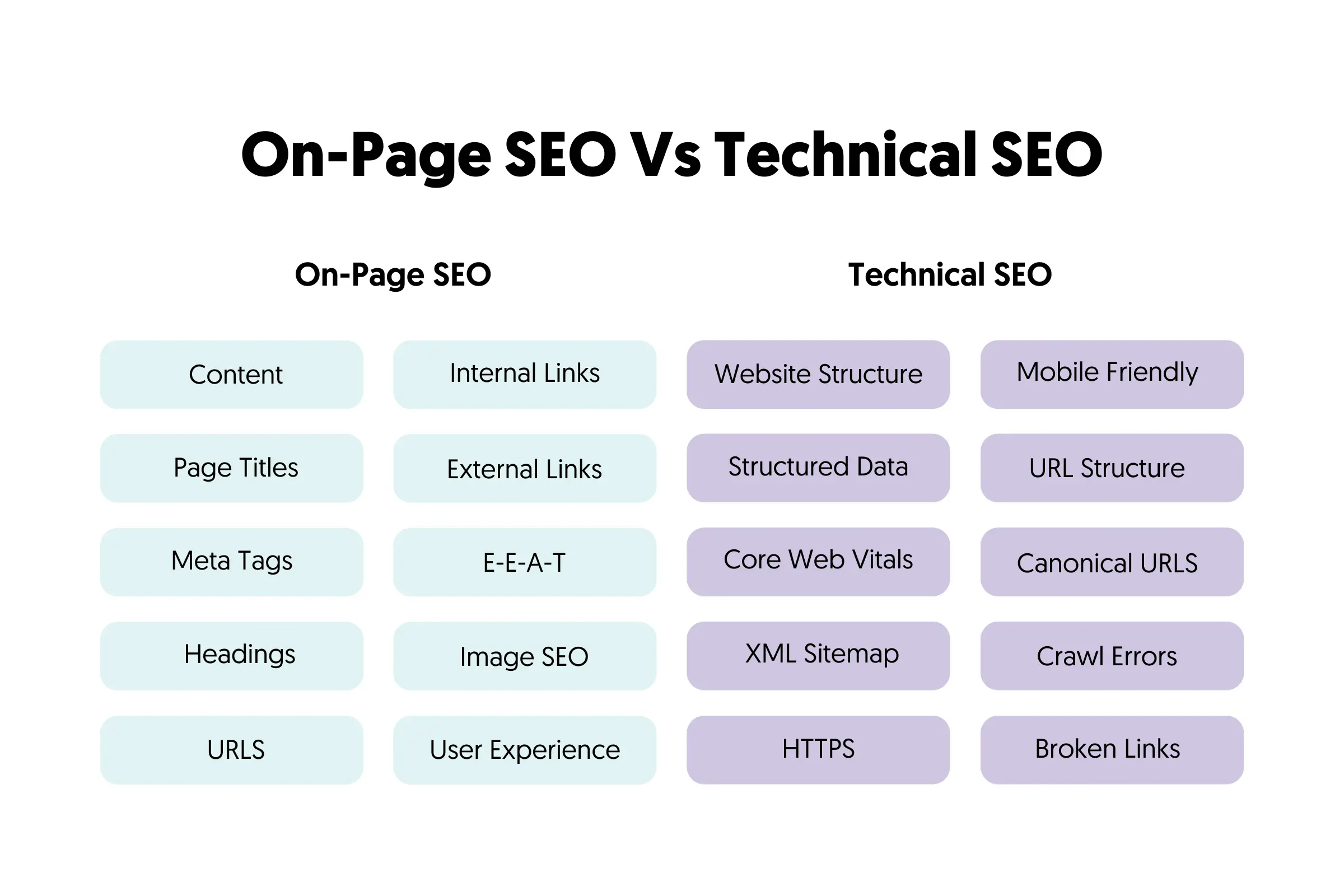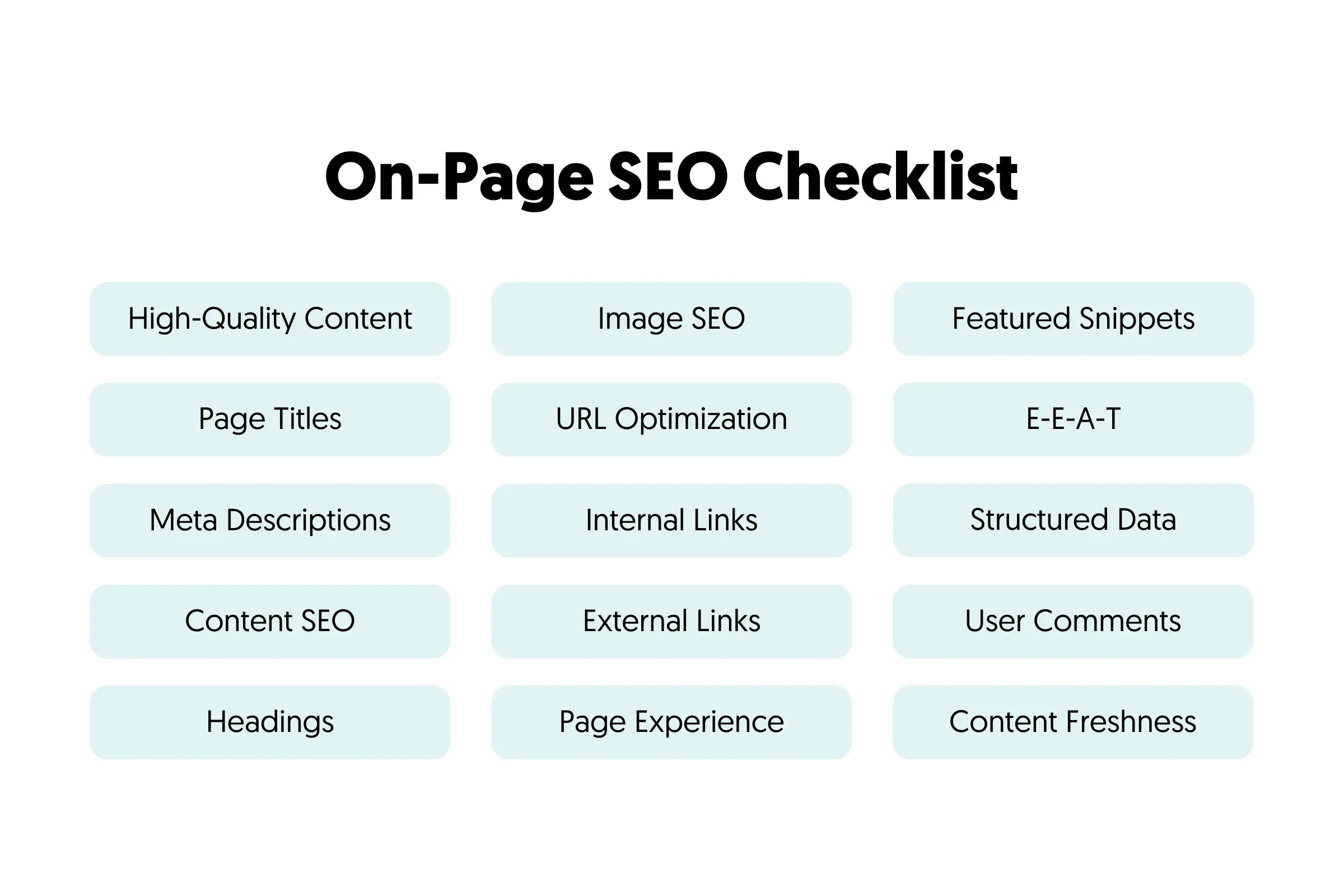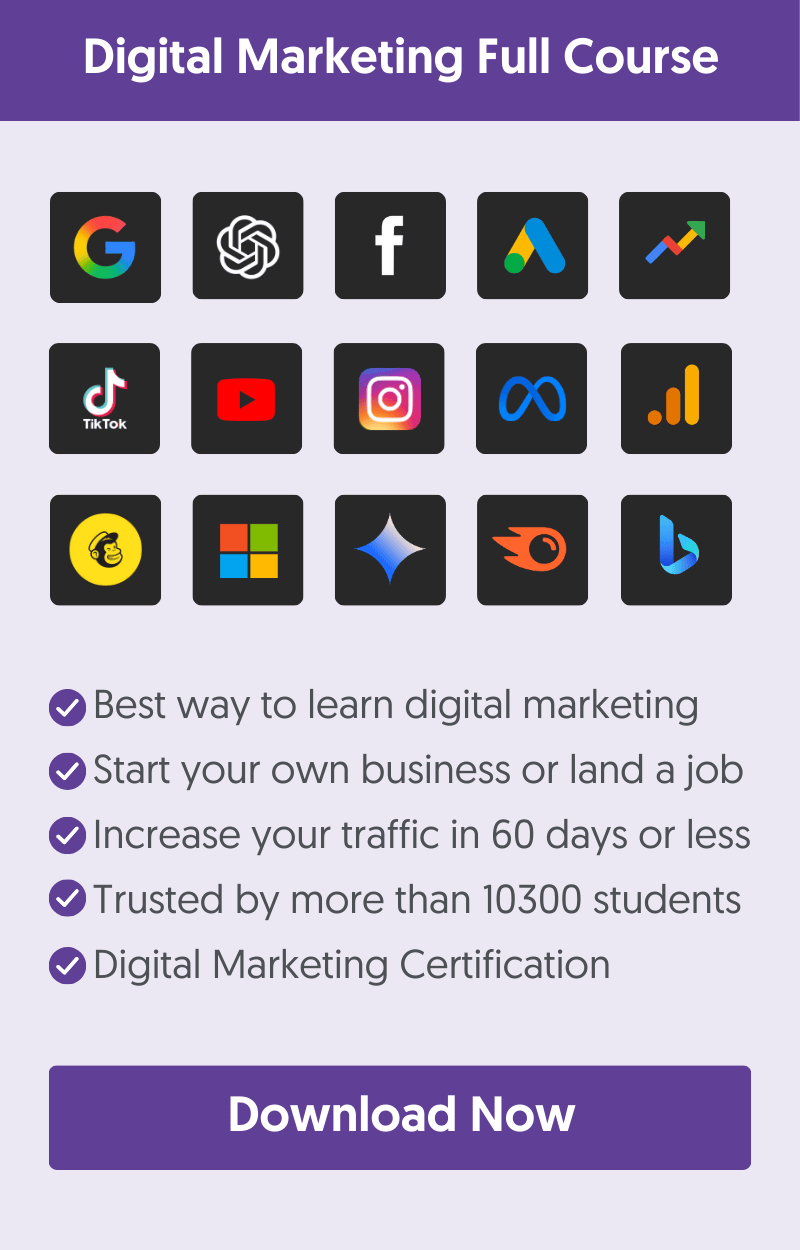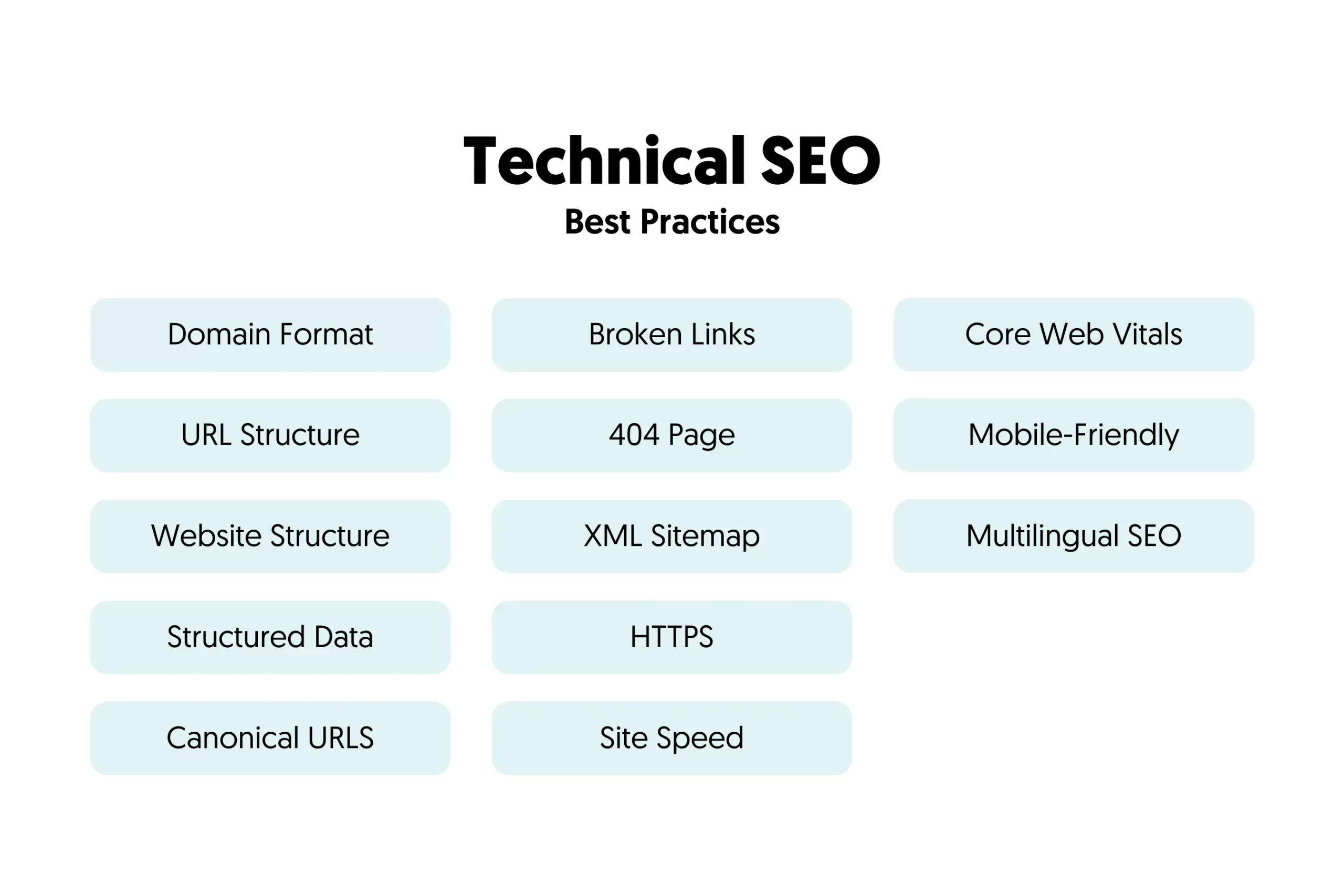When you get into SEO, you'll soon come across terms like on-page SEO and technical SEO. I know from experience that this terminology is sometimes confusing for beginners, but it doesn't have to be.
To avoid confusion, let's start by understanding that SEO includes many elements you must check to optimize your website for search engines. To make the process easier to handle, these elements are grouped into sub-processes, two of which are on-page and technical SEO.
Differences Between On-Page SEO And Technical SEO
On-page SEO and technical SEO are two of the most important processes of SEO. Technical SEO involves optimizing your website's infrastructure, ensuring search engines can crawl and index your content without issues. On-page SEO is all about the content and how to improve it and make it more relevant to users' queries.
In summary, the main focus of on-page SEO is:
- Creating relevant and engaging content that answers users’ queries.
- Optimizing content for specific keywords.
- Crafting compelling title tags and meta descriptions that resonate with the target audience.
- Using internal links to help users and search engines discover more relevant content.
The main focus of technical SEO is:
- Ensuring search engines can crawl and index your site without problems.
- Make sure your website is properly accessed on all devices, including mobiles.
- Optimizing for fast load times and core web vital scores.
- Adding structured data to help search engines understand the context of the content.
- Regularly addressing broken links and other technical issues.

What Is Technical SEO?
In simple terms, technical SEO is all about optimizing your website's infrastructure to ensure that search engines can access, crawl, and understand your content properly.
Search engines, like Google, use bots to crawl web pages and index them in their databases. If your website has issues that prevent these bots from crawling it effectively—such as broken links, slow load times, or confusing site structures—it can hurt your rankings.
Think of technical SEO as laying a solid foundation. Without it, even the best content might not get the visibility it deserves.
Technical SEO Best Practices
Follow the best practices below to ensure your website is in good technical SEO shape.
Check Your Website Structure: Ensure your website has a clear and logical structure so users and search engines can easily navigate it. A hierarchical structure with no more than 3 levels is ideal for most websites. Read our guide on how to build your website structure for more details.
Optimize Core Web Vitals: Focus on page load speed, interactivity, and visual stability to improve user experience and search rankings.
Make Sure Your Site is Mobile-Friendly: Test your website on different devices to ensure it works well on mobile phones and tablets.
Implement Structured Data Markup: Use schema markup to help search engines understand your content and enhance its appearance in search results.
Fix Broken Links: Regularly check for and repair any broken links to prevent users and search engines from hitting dead ends.
Ensure Website Security: Use HTTPS to secure your site and protect user data, which is also a ranking factor.
Manage Duplicate Content and Canonical URLs: Avoid duplicate content issues by properly setting up canonical URLs to guide search engines to the preferred version of a page.
Conduct Regular Technical SEO Audits: Periodically review your site’s technical health to catch and fix issues before they impact your search performance.
For more details make sure you read our technical SEO checklist. It includes all checks with step-by-step instructions.
What Is On-Page SEO?
On-page SEO is all about optimizing the content and elements on your web pages to make them more relevant and useful for both users and search engines. It’s everything you do directly on your content to increase your chances of ranking higher in search results.
For example, this includes using the right keywords in your content, writing compelling meta descriptions, and ensuring your headings are structured logically.
Think of on-page SEO as fine-tuning your content to meet the needs of your audience while also making it easy for search engines to understand what your page is about.
Focusing on what users are searching for and providing them with high-quality, targeted content will increase the likelihood of your pages climbing in the rankings.
On-Page SEO Best Practices
These are the most important on-page SEO techniques you should focus on.

Start with Keyword Research: Perform keyword research to identify the keywords your target audience is searching for. Use tools like Semrush or Ahrefs to find relevant keywords and understand their search volume and competition.
Focus on Content Quality: Create informative, engaging, and relevant content that answers your audience’s questions and solves their problems.
Incorporate EEAT: Demonstrate Experience, Expertise, Authoritativeness, and Trustworthiness in your content by providing accurate information and citing credible sources.
Use Keywords Strategically: Place your main keywords naturally in the title, headings, meta description, and throughout the content, but avoid keyword stuffing.
Structure Your Content Well: Use headings, subheadings, bullet points, and short paragraphs to make your content easy to read and digest.
Keep Your Content Fresh: Regularly update your content to ensure it remains relevant and up-to-date with the latest information.
Enhance User Experience (UX): Ensure your site is easy to navigate, visually appealing, and fast-loading to keep users engaged and reduce bounce rates.
For more details make sure you read our on-page SEO checklist. It includes all checks with step-by-step instructions.
Which Is More Important, Technical SEO or On-Page SEO?
Both technical SEO and on-page SEO are important processes for optimizing a website for search engines. As you can see below, the three main SEO types (technical SEO, on-page SEO, and off-page SEO) work together to improve your site’s visibility and performance.
Some tasks are common to each process, but separating them into processes is not your main goal.
What is important is that none of these can be ignored if you want to succeed in SEO. Technical SEO sets the stage, on-page SEO enhances your content, and off-page SEO builds your site’s reputation.
Each plays a crucial role, and neglecting any one of them can limit your overall success. The key is to strike a balance and ensure all aspects are aligned with your overall marketing goals.

Learn More About SEO
Learning the difference between technical SEO and on-page SEO is not the end of your learning journey but the beginning. To become an SEO expert, you should explore how SEO works and dive deeper into topics like content writing, link building, content marketing, and analytics.
Continuously update your knowledge as search engine algorithms evolve, and regularly practice applying what you learn. You can get started using these guides:




